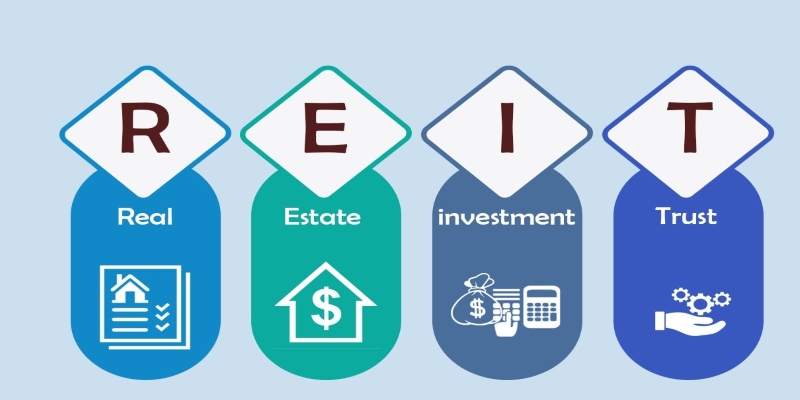
How To Build Wealth Through Real Estate Investment
Tooba
Real estate investment has long been considered a reliable method for building wealth. Whether you are a beginner looking to dip your toes into the market or an experienced investor seeking to scale up, understanding how to approach real estate investment is key to success. This article will explore various strategies, tips, and considerations to help you build wealth through real estate investment, all while avoiding common pitfalls.
Understanding The Basics Of Real Estate Investment
Before diving into the specifics, it’s important to understand what real estate investment entails. Essentially, investing in real estate involves purchasing properties with the goal of generating income or profiting from the property’s value appreciation over time. There are different ways to invest in real estate, each with its own set of benefits and risks.

The most common forms of real estate investment include residential properties (such as single-family homes, multi-family units, or condos), commercial real estate (offices, retail spaces), and real estate investment trusts (REITs). Residential properties tend to offer more stability and regular income through rent, while commercial properties can bring higher returns but often require more capital and a higher level of expertise. Regardless of which form of real estate you choose, the key to success lies in making informed decisions and continuously learning about the market.
Assessing The Market: Research Is Essential
One of the first steps in any real estate investment venture is researching the market. This doesn't just mean knowing where to buy but also understanding the dynamics that drive property values in a particular area. Factors like local demand for housing, job growth, infrastructure development, and neighborhood trends all contribute to an investment's potential profitability.
When considering a property, it's important to assess its location, as this will significantly impact rental income and long-term value. For instance, properties located near top-performing schools, commercial hubs, or planned transportation improvements tend to appreciate more quickly than those in less-developed areas.
In addition to local factors, you should also research national economic conditions. Real estate is influenced by broader trends such as interest rates, inflation, and the overall economic climate. Higher interest rates, for example, can make borrowing more expensive and might dampen demand for real estate, leading to slower price growth or even declines in some markets.
Financing Your Real Estate Investment
Another key aspect of building wealth through real estate is understanding how to finance your investments. While some investors may have enough savings to purchase properties outright, most rely on a combination of loans and personal capital. Understanding the different types of financing available to you is crucial for success.

Traditional bank mortgages are the most common way to finance real estate purchases. However, qualifying for a loan can be a challenge, especially for first-time buyers or those with less-than-perfect credit. It’s important to shop around and compare rates from different lenders to secure the best deal. Keep in mind that the down payment and interest rates will have a major impact on your profitability.
In addition to traditional financing, there are alternative financing options, such as private loans, hard money loans, and partnerships. Each option has its pros and cons, so it’s essential to understand the terms, interest rates, and repayment structures before committing.
Another aspect to consider is leveraging. This means using borrowed money to invest in properties, allowing you to increase your returns with less initial capital. While leveraging can accelerate your wealth-building process, it also increases your exposure to risk. If property values decline or rental income doesn’t meet expectations, leveraging can lead to significant losses.
Choosing The Right Type Of Property
Once you've done your research and secured financing, the next step is to choose the right property to invest in. There are several options to consider, and each comes with its potential for profit. Single-family homes are often seen as one of the most stable investments. These properties tend to be in high demand and offer a steady stream of rental income. However, the return on investment (ROI) may be lower compared to other types of real estate, particularly in high-growth markets. Nonetheless, the lower risk and stability make single-family homes an attractive choice for many investors.

Multi-family properties, such as duplexes, triplexes, and apartment buildings, are another solid choice for building wealth through real estate. These properties offer multiple streams of rental income, which can make them more profitable than single-family homes. Although multi-family properties can be more expensive and require a higher initial investment, they also have a greater potential for cash flow.
Commercial real estate—such as office buildings, retail spaces, and industrial properties—can generate substantial income, but it often requires more capital and involves more complex management than residential properties. Commercial properties are typically leased to businesses, which can provide a steady stream of rental income. However, they also carry more risk due to the potential for vacancies and economic downturns. Each type of property has its own set of considerations, including location, market demand, maintenance costs, and management requirements. It’s important to choose the right investment based on your financial goals, risk tolerance, and level of expertise.
Managing Your Real Estate Investment
Once you’ve acquired a property, the work doesn’t stop there. In fact, property management is one of the most important aspects of maintaining and growing your wealth through real estate. Effective property management ensures that your investment continues to generate income and appreciate over time. For residential properties, managing tenants is a key part of the process. This includes finding reliable tenants, handling lease agreements, addressing maintenance issues, and ensuring that rent is paid on time. While property management can be time-consuming, it can be outsourced to professional property management companies if you prefer a more hands-off approach.

In commercial real estate, management involves maintaining the property and ensuring that the business tenants are meeting their lease obligations. This may also involve working with third-party vendors for services like landscaping, cleaning, and security. A key part of managing your property is ensuring that it remains well-maintained and in good condition. Regular upkeep helps preserve the property's value and reduces the likelihood of expensive repairs down the road. This includes everything from landscaping to plumbing, roofing, and electrical work. Maintaining a property also ensures that you can attract and retain good tenants, which in turn helps sustain rental income.
Realizing The Potential For Profit: Appreciation And Cash Flow
There are two primary ways that real estate can generate wealth: appreciation and cash flow. Appreciation refers to the increase in the value of your property over time, while cash flow refers to the income generated from renting out the property. Appreciation occurs when a property’s value rises due to factors such as market trends, neighborhood improvements, and the overall economy. While it’s difficult to predict exactly how much a property will appreciate, historical trends and research can provide guidance. Investors who buy in growing or gentrifying areas often see substantial returns as the property values increase.

Cash flow, on the other hand, comes from the income generated by renting out your property. To maximize cash flow, it’s important to keep operating costs low while ensuring that rent prices are competitive with similar properties in the area. Managing property expenses, such as utilities, maintenance, and taxes, is key to keeping cash flow positive. Both appreciation and cash flow can help you build wealth, but they require different strategies. While appreciation is more passive, cash flow requires active management to ensure that income exceeds expenses.
Conclusion
Building wealth through real estate investment is a long-term commitment that requires careful planning, research, and management. While the process can seem complex at first, breaking it down into manageable steps—understanding the market, securing financing, choosing the right properties, managing them effectively, and monitoring your investments—can lead to substantial returns over time.
Real estate offers multiple avenues for generating wealth, whether through rental income, property appreciation, or a combination of both. However, it's important to approach this journey with patience and diligence, knowing that success in real estate investment comes not from short-term gains but from consistent, well-informed strategies over the long run.




